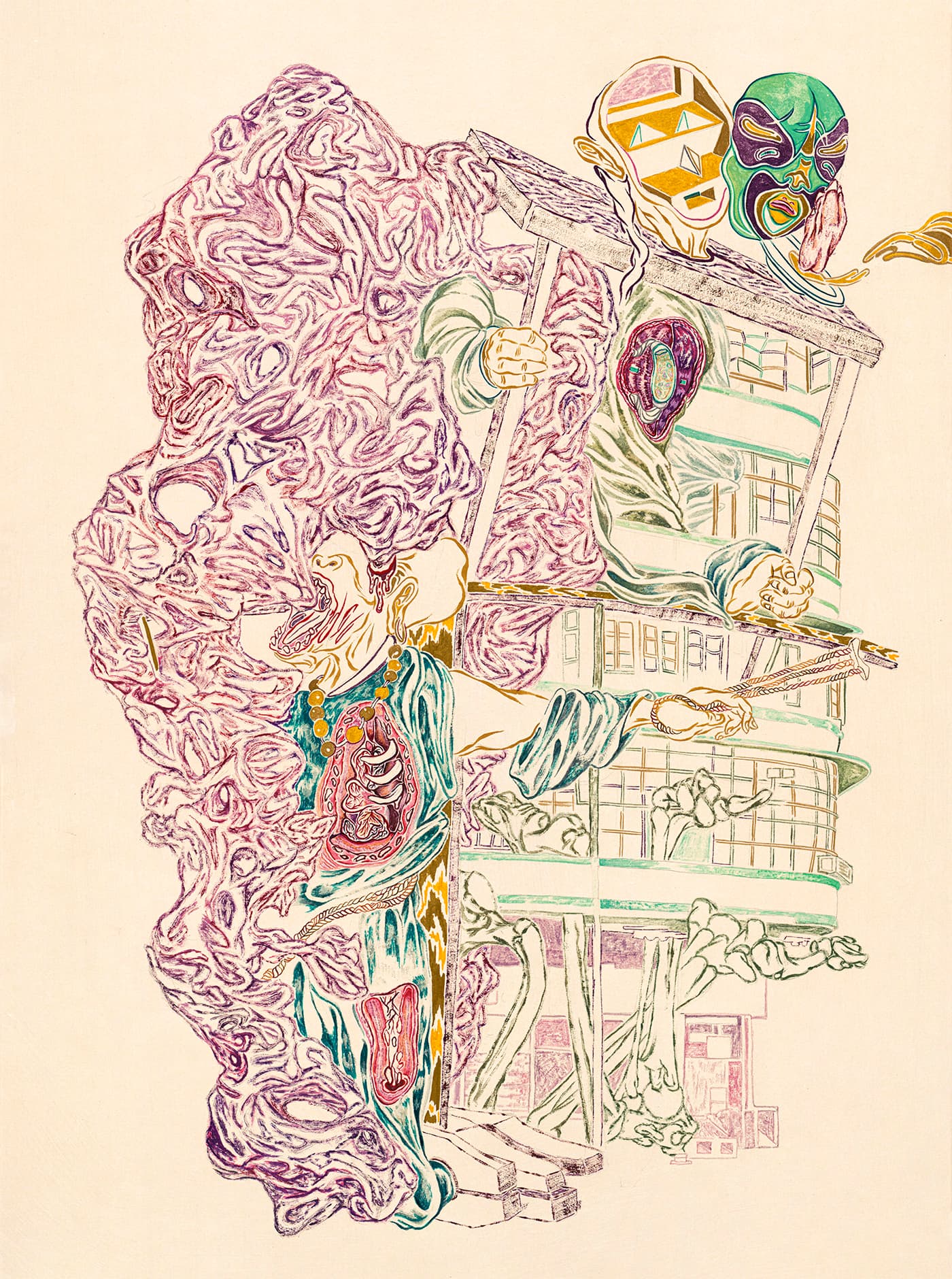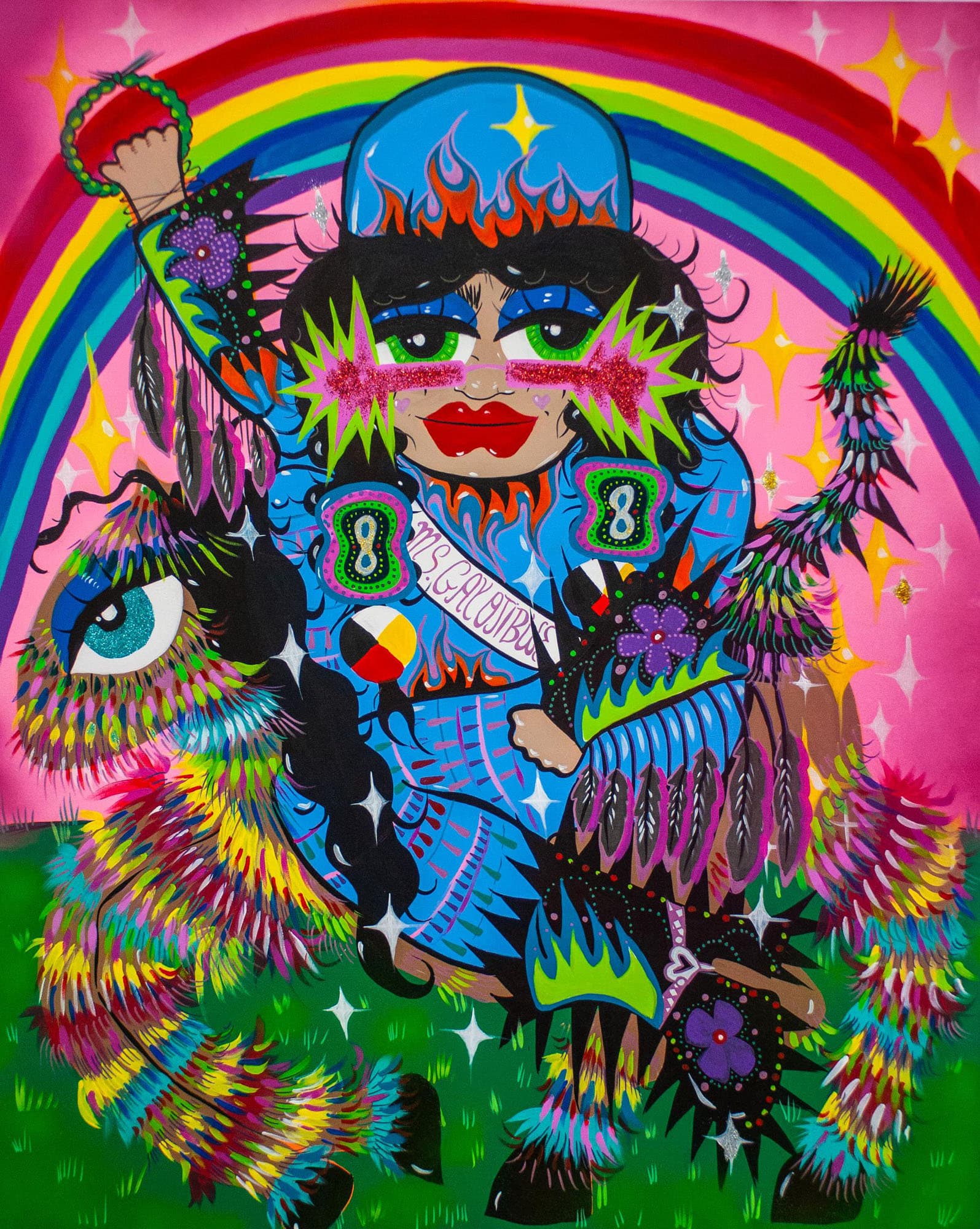
Editor's Note
Ceremony. Death. The ceremony of life before the ultimate melancholy of death. We are all born and we all die. It’s a universal truth. We walk each other home over the course of our shared time together. Time itself feels like eternity when you seek death and yet, it effortlessly breezes by when you choose life. What is time then? Can we reach truths before time runs out? These two, life and death, play with our hearts, asking us to accept the truth of both realities while in pursuit of joy simultaneous with melancholy.
I was told to kill my inner child over a Sunday breakfast in Paris earlier this Spring. Kill my younger self because she carries the traumas that led to a woman forming in a child’s body. The woman inside the child carries the traumas inherited from her ancestors. And now, that very child’s body stunts the inevitable growth of her as an adult. Feels like such a generational cycle, prompting me to wonder if the matriarchs before me contemplated such things. Killing her was the only option presented to me. It felt saddening because my younger self gave her innocence away to protect her future self, who I presently am, in the past, who I once was. Giving her permission to rest felt more natural. It felt compassionately human to formulate loving bonds within me despite hateful circumstances outside of me. The oppressed should never become the oppressor.
It was the universe’s will for this publication to be themed Ceremonial Deaths, coinciding with the death of Elizabeth Alexandra Mary Windsor. This re-traumatized all whom she colonised and continues to in her felt dominion. We live in her legacy of imperialism that no ceremony can undo. I meditated deep into my own ethics and morality to govern an appropriate response to all this. I revisited Judith Butler’s important questions. Whose lives count and what makes a life grievable? Decidedly, I won’t celebrate the demise of a life that is not grievable to me, personally. I won’t oppress.
That needlessly takes space.
Instead of praising her death, we shall focus on the work required to undo what her life created. We can’t grasp the extent of how colonialism has infiltrated the ways in which we speak, listen and walk through our lives. Those once colonised are still healing from memories of traumas that exist even though time has carried on. Her death does nothing to heal such traumas.
Perhaps we ought to focus on the legacy of her spirit despite the physical demise of her human body. What are future prompts to shapeshift her spirit from carnage to caring? Can this death be an event of creation: reconciliation, land back, repatriate stolen artefacts to their native countries, abolition, and new world building?
During this period of immense interrogation, Mahsa Amini died, asking me to contemplate Butler’s questions again. Her life was taken because it was seen as less valuable in a patriarchal society. She succumbed to the traumatic brutality inflicted upon her by Iran’s morality police, the Guidance Patrol. That event is grievable because her death humanises how monarchies, dictatorships, and authoritarianism continue to inflict harm on bodies they deem to have less value. Her death sparked immense bereavement. Her death evoked painful outrage. Her death has contributed to the growing call for equal rights by women everywhere. Her death has started a movement for new change. Mahsa’s new world can abolish Elizabeth’s old world.
This needs to take space.
This issue is a loving support to Mahsa and the women resisting patriarchal, Islamic theocratic inflictions on the female body. A revolution is coming. I can hear her breaths.
Editor-in-chief
raji kaur aujla















